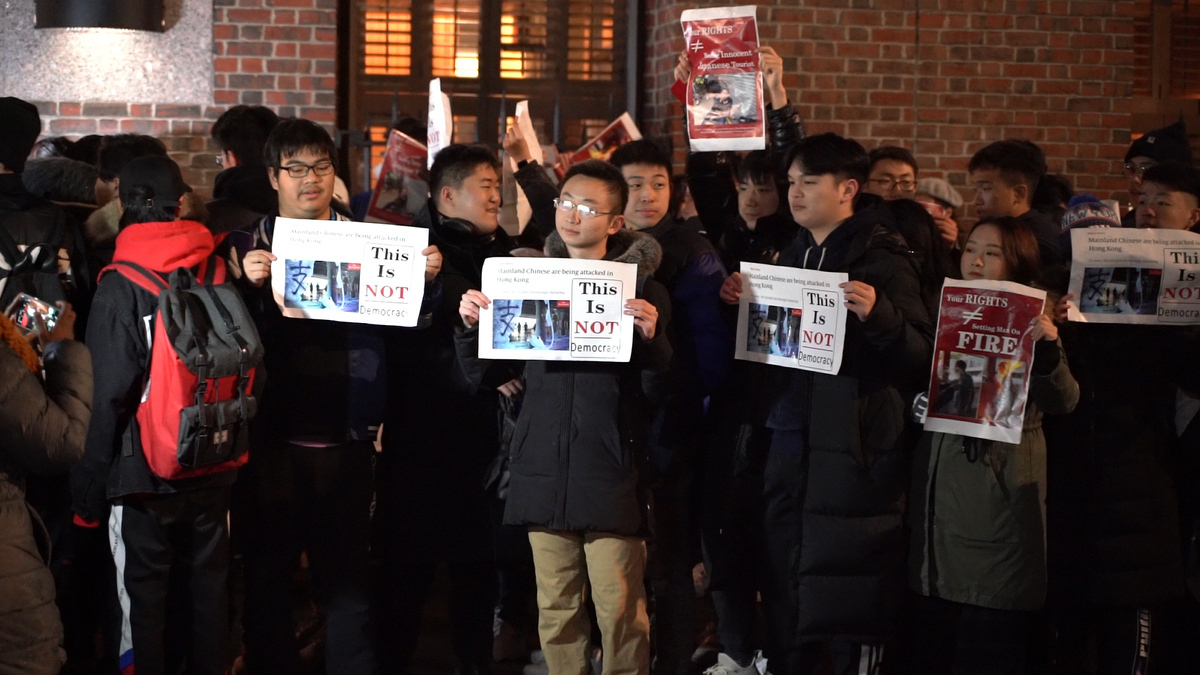Key lessons to be learned from DC election results


The pro-establishment camp’s defeat in the District Council Election is not entirely unexpected. Notwithstanding the common-sense presumption that most Hong Kong citizens are opposed to the street violence, property destruction and transportation disruption wreaked upon our once-safe and orderly society by the “blackshirts” in the past six months, there was a reliable opinion survey before the election showing that 40 percent of the citizens actually support their anarchy! With such deviant thinking, what can you expect!
Most media described the scale of the pro-establishment camp’s defeat as disastrous! But upon deeper analysis, one finds that this initial impression is not borne out by two hard facts. One is that the camp obtained a total of 1.34 million votes, about 300,000 more than what it normally received in previous elections, which is quite a significant increase. Second is that the figure accounts for 41 percent of the total votes cast, compared with 52 percent for the opposition camp. So if Manchester United were to lose to Liverpool 5-4, no one would describe the defeat as disastrous. Clearly, the current election result is unhealthy in terms of future District Council work, as we now have over 40 percent of our community voice shut out from the district councils, which were dedicated to serving the community.
A postmortem shows that there was a drastic increase in the registration of new voters of about 400,000 — mostly young people. This may account for the 260,000 votes that the opposition camp has won over the pro-establishment camp, because unfortunately, most of these young people, similar to those who participated in the riots, have been brainwashed to hate the establishment, and they may well be the crucial factor in the opposition parties’ victory.
Another factor is the logistic and organizational efficiency and the PR-savviness of the opposition camp, which the staid pro-establishment camp could never match. Furthermore, the “pan-dems” are fully supported by most of the local media, in particular Apple Daily and RTHK. For example, on the eve of the election, RTHK’s special guest for its weekly program Letter to Hong Kong was a professor of the Chinese University of Hong Kong, who used the opportunity to attack the government, stirred up “police brutality” allegations, and accused the police of invading the CUHK campus, causing extensive damage. But this person made no mention of the hundreds of gasoline bombs thrown by the student rioters, and their blocking of Tolo Highway, throwing bricks at passing cars, etc. And police were just there to protect citizens and drivers and keep the vital road link open. With such a blatant distortion of the truth, coming from the mouth of a professor teaching philosophy in the Chinese University, is it any wonder that the university contributed so many blackshirts who were arrested for their rioting?
Adding to the pro-establishment camp’s woes is foreign interference. The United States Congress hastily passed the Hong Kong Human Rights and Democracy Act just before the Hong Kong election. The Australian government chose this critical juncture to release the false news of a mainlander seeking political asylum, claiming he was a mainland spy working in Hong Kong and Taiwan, only to see the whole drama become a farce when it transpired that the person was actually a suspect wanted on the mainland for fraud.
There are numerous reported incidents of illegal activities in the election period, and clearly, many have not been investigated promptly or properly, including violence directed at candidates, harassment of election campaigns, criminal damage of District Council ward offices, etc. Many of these are serious offenses under the Corrupt and Illegal Practices Ordinance, and the Independent Commission Against Corruption should thoroughly investigate them and bring the offenders to justice.
But a defeat is a defeat, and we must accept the results and look forward. The next electoral fight, an even more consequential one, will be the Legislative Council elections next year. The pro-establishment camp must learn from its mistakes and shortcomings in the District Council elections and be better prepared to win the bigger prizes of LegCo seats.
Firstly, although the last election saw a record voter turnout, it still means that there were over 1 million registered voters who did not vote. They are more likely to be elderly and conservative, and every effort should be made to identify them to get them to come out to vote for pro-establishment LegCo candidates.
Secondly, an all-out effort should be mounted to have all qualified citizens registered as voters. I know of many people who kept criticizing the blackshirts yet did not bother to register as voters.
Thirdly, the current pro-establishment legislators must be seen to be working a lot harder than the opposition members to push through more livelihood issues in coming months. For example, they can suggest having daily meetings of the Finance Committee, including on weekends, to speed up the approval of livelihood-related items.
Finally, the defeated District Council members should not lose heart, but should redouble their efforts in their respective communities to serve people in the district. They could also form shadow District Council groups in every district to monitor the work of the new district councils, and to expose their inadequacies and abuse of office to the public. They should make the best use of social media, such as Facebook, to form a citizens group in every district, and actively encourage the socially conscious citizens, especially the intelligent young ones, to join.
Most certainly, thinking that they now have carte blanche to do whatever they want as a result of the opposition’s electoral victory, the blackshirts will resume their wanton violence and indiscriminate destruction very soon to pressure the government into unconditionally acquiescing to their unlawful demands. But sooner or later, more Hong Kong people will have had enough of this ongoing insanity and start to regret casting the wrong vote.


































